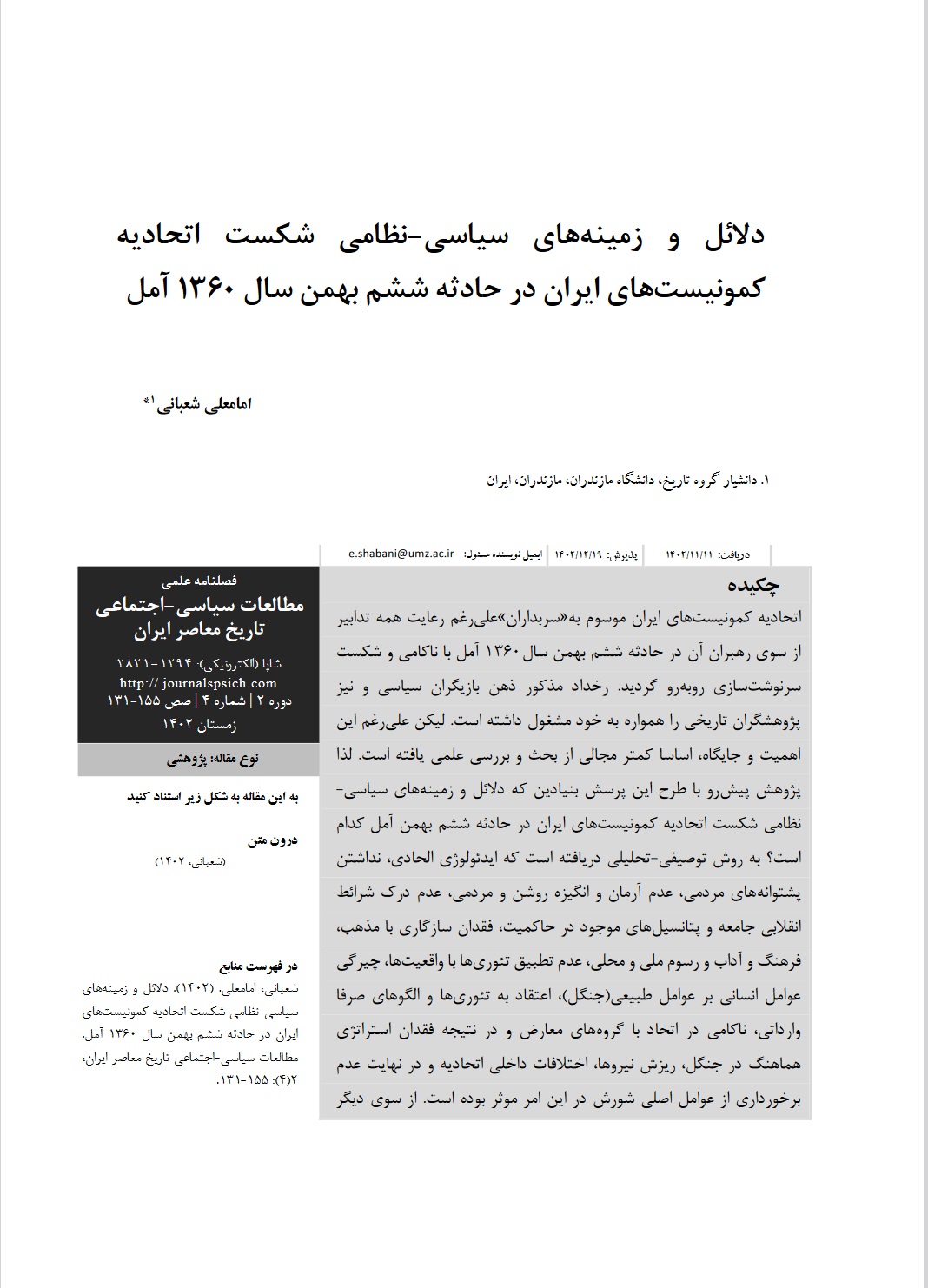Political-Military Reasons for the Failure of the Union of Iranian Communists in the Amol Incident of January 26, 1982
Keywords:
Union of Iranian Communists, Amol incident January 26, 1982, Failure, Reasons and Contexts, Political-MilitaryAbstract
The Union of Iranian Communists, known as "Sarbedaran," despite all precautions taken by its leaders, faced a decisive defeat in the Amol incident on January 26, 1982. This event has continually occupied the minds of political actors and historical researchers. However, despite its importance, it has rarely been the subject of scientific debate. Therefore, this study addresses the fundamental question: What were the political and military reasons behind the failure of the Union of Iranian Communists in the Amol incident? Utilizing a descriptive-analytical method, it has been determined that atheistic ideology, lack of popular support, absence of clear and popular goals and motivations, misunderstanding of the societal revolutionary conditions and existing potentials within the ruling governance, incompatibility with religion, local culture, and customs, failure to adapt theories to realities, human factors prevailing over natural ones (forest), adherence to purely imported theories and models, failure to align with opposing groups, and consequently a lack of coordinated strategy in the forest, loss of forces, internal divisions within the union, and ultimately lack of key factors for insurrection were significant contributors to their defeat. Additionally, one should not overlook the advantages and political-military support from official institutions and organizations, including popular backing, in the significant political-military action of the Union, namely the Amol incident of January 26, 1982.
Downloads








